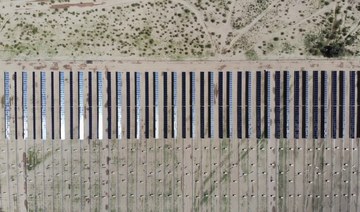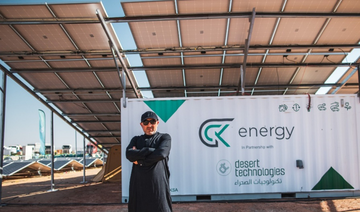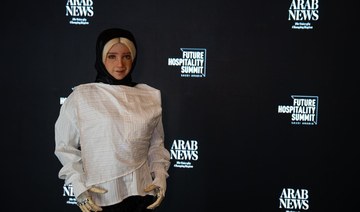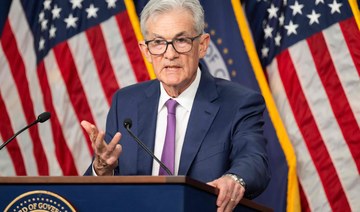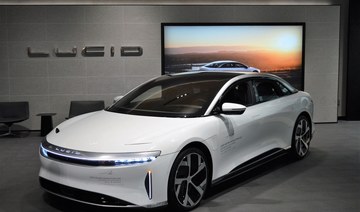LOS ANGELES: Global solar power developers are slowing down project installations because of a surge in costs for components, labor, and freight as the world economy bounces back from the coronavirus pandemic, according to industry executives and analysts interviewed by Reuters.
The situation suggests slower growth for the zero-emissions solar energy industry at a time world governments are trying to ramp up their efforts to fight climate change, and marks a reversal for the sector after a decade of falling costs.
It also reflects yet another industry shaken up by the supply chain bottlenecks that have developed in the recovery from the coronavirus health crisis, which has businesses from electronics manufacturers to home improvement retailers experiencing huge delays in shipping along with soaring costs.
“The narrative is shifting,” S&P Global Platts clean energy analyst Bruno Brunetti said in an interview, citing the costs inflation.
Among the biggest headwinds for solar is a tripling in prices for steel, a key component in racks that hold solar panels, and polysilicon, the raw material used in panels.
Soaring shipping freight rates along with higher costs for fuel, copper and labor are also pinching project costs, company executives said.
Research firm IHS Markit warned last week that its global solar installation forecast for the year could slide to 156 gigawatts from a current projection of 181 GW if price pressures do not ease.
Wall Street has also punished the sector in recent weeks, sending the MAC Global Solar index down 24 percent this year after it tripled in 2020.
Project developers in the United States, the No. 2 solar market behind China, told Reuters they are struggling to price projects for 2022 given the lack of clarity on how long price spikes will last.
Solar engineering, procurement and construction firm Swinerton Renewable Energy said some of its customers have also put “soft holds” on projects slated to start later this year while they wait to see if prices trend down.
“We’ve just become accustomed to such a low cost energy source,” said George Hershman, Swinerton’s president. “Like anything it’s hard to accept that you’re going to start to pay more.”
Contract prices for solar were already up 15 percent in the United States in the first quarter compared with last year due to higher interconnection and permitting costs, according to a quarterly index by LevelTen Energy.
US panel manufacturer First Solar Inc. told investors in April that congestion at American ports was holding up its module shipments from Asia.
And a US maker of solar mounting systems, Array Technologies Inc, withdrew its forecast for the year last month due to steel and freight costs.
In Europe, some projects that do not have strict timelines for when they need to begin delivering power are being delayed, according to executives and analysts.
“The situation has not resolved itself because prices have stayed high, so those who have capacity to wait are still waiting,” said Jose Nunez, chief financial officer of Spanish solar tracker maker Soltec Power Holdings SA. Nunez said Soltec was seeing project delays in all of the markets it serves.
Supply constraints could put upward pressure on relatively stable European solar prices later this year as companies seek to preserve profit margins that are already razor thin, according to LevelTen.
In China, the world’s top solar product maker, producers are already raising prices to protect margins, leading to slower orders.
According to three solar panel makers in China polled by Reuters, prices for panels are up 20-40 percent in the past year, following the surge in costs for polysilicon, the raw material for solar cells and panels.
“We have to manufacture the product, but on the other hand, if the price is too high, the project developers want to wait,” Jack Xiao, marketing director at BeyondSun Holdings, a panel maker that exports 60 percent of its products, said.
A state-backed solar cell factory manager who asked not to be named told Reuters that output has dropped because customers are reluctant to fulfill orders at current prices.
China’s Canadian Solar Inc, a top panel producer, said last month that its product prices were up 10 percent in the first quarter from the previous three month period, an increase it plans to pass on to customers.
“We will continue to take price up, and we’re willing to give up some volume in order to protect margins,” Yan Zhuang, president of the company’s module making division, said on a conference call with investors last month.
Global supply chain squeeze, soaring costs threaten solar energy boom
https://arab.news/2jg6s
Global supply chain squeeze, soaring costs threaten solar energy boom

- Soaring shipping freight rates along with higher costs for fuel, copper and labor are also pinching project costs, company executives said
UAE banks’ aggregate capital, reserves exceed $136bn
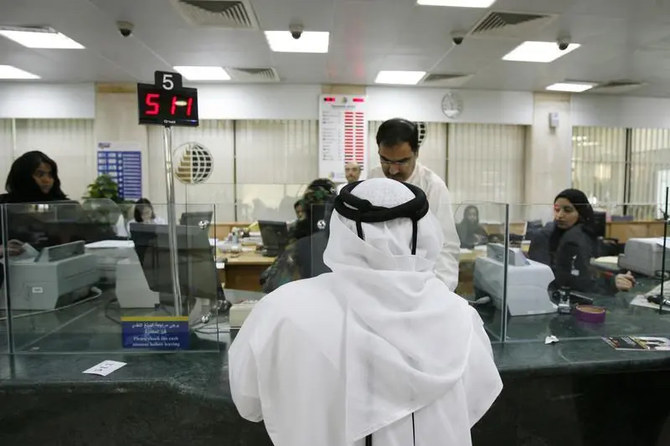
RIYADH: UAE-based banks’ aggregate capital and reserves reached 501.5 billion dirhams ($136 billion) at the end of February, up 14.4 percent year-on-year, according to new data.
The latest statistics from the Central Bank of the UAE showed that on a monthly basis, the total capital and reserves grew 0.95 percent, reflecting an increase of approximately 4.7 billion dirhams, according to the Emirates News Agency, also known as WAM.
This rise in figures falls in line with the central bank’s goal of enhancing monetary and financial stability in the country.
Moreover, the data indicated that national banks accounted for around 86.5 percent of the aggregate capital and reserves of banks operating in the UAE. At the end of February, they recorded a total of 433.7 billion dirhams, an annual rise of 14.6 percent.
On the other hand, the share of foreign banks settled at 13.5 percent, hitting 67.8 billion dirhams at the end of the same month, reflecting a 13.2 percent surge compared to the same period a year earlier.
Furthermore, at the end of February, the total capital and reserves of banks operating in Dubai alone stood at 246.4 billion dirhams, logging a year-on-year growth of 15.1 percent.
Additionally, banks operating in Abu Dhabi recorded around 217 billion dirhams, up 13 percent from the corresponding period in 2023.
Meanwhile, the cumulative capital and reserves of banks operating in other emirates combined reached an estimated 38.1 billion, reflecting a 15.5 percent climb in comparison to the same period a year prior.
In March, a top executive at Roland Berger said that UAE bank branches were witnessing the highest revenues in the region, amounting to $18.6 million per branch.
This was driven by the nation’s digital transformation, which enabled financial institutions in the Gulf Cooperation Council to reduce the number of banking branches by 328 within three years, Saumitra Sehgal, the global consulting firm’s head of financial services in the Middle East, told WAM, at the time.
Sehgal also pointed out at the time that the number of bank branches across GCC nations decreased from 4,067 at the end of 2019 to 3,739 by December 2022.
He further noted that banks in the UAE saw the highest number of outlets merge and reduce with the support of digital transformation between 2019 and 2022.
Saudi financial robo-advisory firm Abyan Capital secures $18m in funding
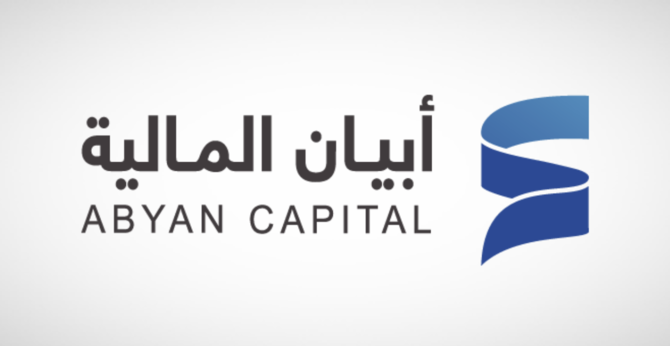
RIYADH: Financial robo-advisory firm Abyan Capital has secured $18 million in funding in further evidence of the growing confidence in the Kingdom’s artificial intelligence sector.
Led by STV, the funding round also saw participation from Aramco’s Wa’ed Ventures and RZM Investment.
Robo-advisors are digital platforms that utilize AI and machine learning algorithms to automate and optimize investment processes.
Founded in 2022 by Abdullah Al-Jeraiwi, Omar Al-Mania and Saleh Al-Aqeel, Abyan Capital is a financial services company that provides an automated solution and portfolio management for long-term investments.
“Abyan Capital stands out by unlocking the SR300 billion ($80 billion) investment management and wealth advisory sector for investors from all backgrounds in Saudi Arabia, through its mobile-first, robo-advisory model,” Yazeed Al-Turki, principal at STV, said in a statement.
In a short period of time, he said Abyan has enabled a large base of first-time investors to access multiple wealth management solutions, underscoring the team’s commitment to innovation and inclusivity.
“We are delighted to partner with Abdullah, Saleh and the team on their journey to redefine the wealth management ecosystem in the Kingdom,” Al-Turki added.
The company aims to utilize its newly secured funds to further enhance its platform, expand its suite of financial products, and accelerate its market penetration across the investment solution value chain.
“Today, we are proud that in a very short amount of time, Abyan has exceeded deposits of over SR1.4 billion and more than 100,000 portfolios invested. And we will be launching new diversified products soon with a goal to make Abyan the digital retail investment house,” said Al-Jeraiwi, the CEO.
Closing Bell: TASI ends the week in green at 12,352
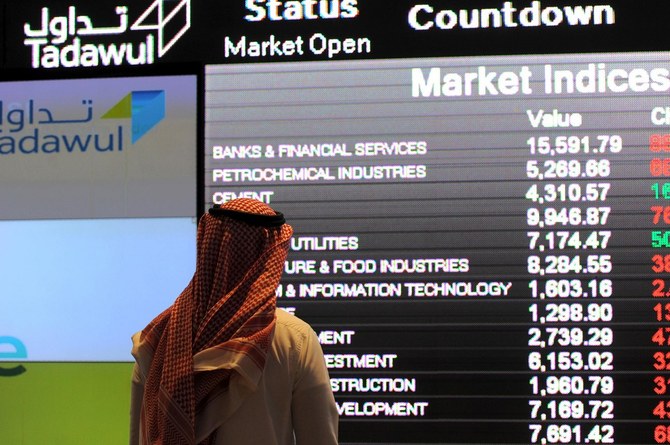
RIYADH: Saudi Arabia’s Tadawul All Share Index ended the week by gaining 6.68 points, or 0.05 percent, to close at 12,352.33 on Thursday.
The total trading turnover of the benchmark index was SR6.55 billion ($1.74 billion) as 120 stocks advanced, while 103 retreated.
The parallel market, Nomu, also gained 95.60 points, or 0.36 percent, to close the trading session at 26,457.81. This comes as 29 stocks advanced, while as many as 27 retreated.
On the other hand, the MSCI Tadawul Index slipped by 2.37 points, or 0.15 percent, to close at 1,547.20.
The best-performing stock on the benchmark index was Al-Baha Investment and Development Co., as its share price surged by 7.69 percent.
Other top performers included Raydan Food Co. and the Company for Cooperative Insurance, whose share prices soared by 7.29 percent and 6.63 percent, to stand at SR30.90 and SR160.80 respectively.
Electrical Industries Co. and the Mediterranean and Gulf Insurance and Reinsurance Co. also fared well during the last trading session of the week.
The worst performer was Saudi Chemical Co., whose share price dropped by 5.36 percent to SR7.77.
Power and Water Utility Co. for Jubail and Yanbu as well as the National Company for Glass Industries, underperformed as their share prices dropped by 5.22 percent and 4.82 percent to stand at SR63.50 and SR42.45, respectively.
On the announcements, Bank AlJazira announced its interim financial results for the period ending March 31 with net profit amounting to SR300.4 million compared to SR279.3 million in the previous quarter.
In an official statement on Tadawul, the bank attributed the increase in the net income to a decrease in total operating expenses by 6 percent.
“The decrease in total operating expenses is mainly due a decrease in net impairment charge for financing and other financial assets, other general and administrative expenses, salaries and employee-related expenses and other operating expenses against an increase in depreciation and amortization expenses,” the statement said.
Conversely, there has been a slight decrease of 0.2 percent in total operating income, primarily attributed to a reduction in net financing and investment gains. Additionally, the rise in net income was partially tempered by increased zakat charges over the period.
GCC central banks hold interest rates steady for 6th time following Fed’s move
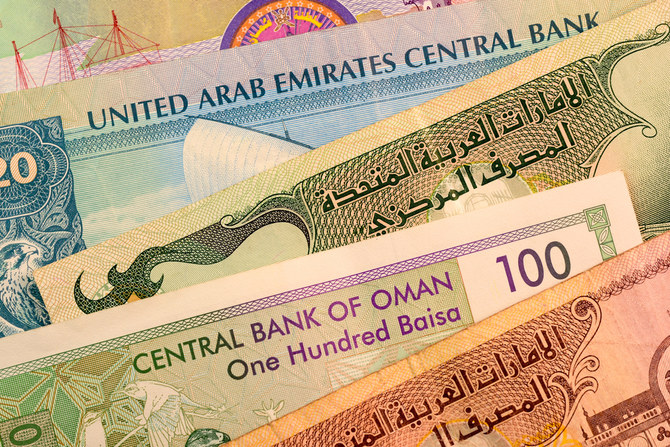
RIYADH: Gulf Cooperation Council central banks have held interest rates steady for the sixth time as the US Federal Reserve keeps its benchmark level between 5.25 percent and 5.50 percent.
As most currencies in the region are pegged to the US dollar, monetary policy follows the decisions taken in Washington, with policymakers opting to lock the rate at the level it has been since July.
The freeze comes as the rate-setting panel cites “a lack of further progress toward the committee’s 2 percent inflation objective.”
Vijay Valecha, chief investment officer at Century Financial, told Arab News: “This decision marks the sixth consecutive time that the central bank has chosen to keep rates unchanged. Market expectations have adjusted, now forecasting only one rate cut by year-end compared to the six anticipated at the beginning of 2024.”
He added: “The monetary policies of most central banks in the GCC countries, including the UAE, Saudi Arabia, Bahrain, Oman, and Qatar, typically mirror those of the Fed due to their currencies being pegged to the US dollar. Kuwait is the exception in the bloc, as its dinar is linked to a basket of currencies.”
Valecha continued by stating that as a result, interest rates in GCC markets are also anticipated to remain stable in the near future, which bodes well for the profitability of GCC banks.
This decision implies that the Saudi Central Bank, also known as SAMA, will maintain its repo rates at the current level of 6 percent.
The UAE central bank, along with Kuwait, Qatar, Oman, and Bahrain, also mirrored the Fed’s move.
Repo rates, which represent a form of short-term borrowing primarily involving government securities, underscore the close economic ties and financial dynamics between the GCC countries and the global economic landscape, particularly the US.
The US central bank also stated that it “does not expect it will be appropriate to reduce the target range until it has gained greater confidence that inflation is moving sustainably toward 2 percent.”
This indicates that rate cuts are not on the cards anytime soon, until inflation cools down and moves sustainably toward the 2 percent target set by the US Fed.
US car marker Lucid partners with KACST to advance EV technology in Saudi Arabia

RIYADH: US electric vehicle manufacturer Lucid Group and Saudi Arabia’s King Abdulaziz City for Science and Technology have inked a pact to boost EV technology development within the Kingdom.
As part of the deal, the California-based firm, in which Saudi Arabia’s Public Investment Fund holds a significant stake, will collaborate with KACST on joint research, utilizing the institute’s services, facilities, and products for dedicated research into advanced battery technologies and materials.
Additionally, they will conduct studies in aerodynamics, autonomous driving, and artificial intelligence technologies, according to a press release.
Faisal Sultan, vice president and managing director of Middle East, Lucid Group said: “Lucid’s goal is to inspire the adoption of sustainable energy by creating advanced technologies. This Memorandum of Understanding marks a key step towards achieving this vision, acting as a catalyst to advance and elevate the entire EV industry and inspire the adoption of sustainable transportation in support of the Kingdom’s vision for a more sustainable and diversified economy.”
The partnership between Lucid and KACST will also include research on electric vehicles, assessing their performance to ensure they are suitable for the climatic conditions in the Kingdom, the release added.
The joint research and development headquarters will be established at the national laboratories in KACST and are scheduled to launch during the third quarter of 2024.
“Using our state-of-the-art facilities, the research conducted under this project will advance electric vehicle systems and aid the development of technologies to support autonomous driving, in line with national aspirations for research, development and innovation in the energy and industry sector,” said Talal bin Ahmed Al-Sudairi, senior vice president of KACST for research and development sector.
The deal will see Lucid Group and KACST collaborating to leverage their expertise in scientific and technical research. Their joint efforts will focus on developing research programs geared toward creating technical solutions for the transportation and energy sectors, thereby bolstering the national economy.
In September 2023, Lucid opened its first plant outside the US in Saudi Arabia with an initial capacity to produce 5,000 EVs a year.
This came as the Kingdom’s government pledged to buy up to 100,000 vehicles from the company over 10 years.



